
Report to the Stakeholders for 2010
by Steve Jackson
Steve Jackson Games Incorporated has a single stockholder: me. But many people have a stake in the success of the business. Our STAKEholders are our employees, our distributors and retailers, and, of course, the people who PLAY our games! Other vital stakeholders are the freelance artists and designers we work with, the printers who create the finished product, the volunteers who demonstrate our games at conventions and retail stores, and the convention organizers who depend on us for game programming, prizes, and so on.
We try to stay in touch with all our stakeholders. Almost all our communications nowadays are via Internet: our Daily Illuminator blog, our Twitter feed, the web pages for our games, and the letters that go to the 200+ people and companies to whom we pay royalties. But every year since 2004, I've written a report not unlike the "report to the stockholders" that you'd expect from a public company. A lot of our stakeholders have told us they like it . . . so here it is again.
Overview
We are, as I assume the reader knows, a publisher of games. Every year, more of these are digital downloads . . . PDFs and a few other types of file sold through our e23 site. We also publish two magazines: Pyramid (a monthly PDF release) and the Journal of the Travellers' Aid Society (a biweekly online zine).
We have been in business since 1980. We currently employ 29 full-time staff and contractors (and need a few more), plus several part-timers.
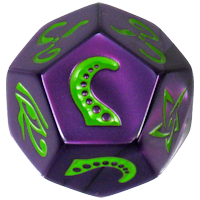 2010: Executive Summary
2010: Executive Summary
We kept things in print, the new dice games rocked, Phil leveled up again in Boss, and I got to do some design work AND take a little time off.
We expected 2010 to be another good year, and it was. Our 2010 gross was just over $3.5 million, a significant increase over 2009, and we made a profit. It was a big and profitable year because:
- We managed to keep the core Munchkin sets in print almost all the time. Sales were again higher than expected, but this year we handled it very well.
- Our two new dice games had amazing sales, and both were reprinted quickly.
- We continued to offer RPG support, mostly in PDF form . . . which breaks even on fewer copies, making up for a shrinking market.
If you compare this report with last year's, you'll see a lot of similarities. This is not, I hope, because the author is lazy, but because this year was a lot like last year for us. The big differences were: we sold even more Munchkin, both through book chains and hobby retailers, and we also sold a lot of dice games.
We shipped 53 different items: 25 new, 28 reprints.
The Munchkin line, including the Munchkin Quest boardgame, accounted for more than 75% of our sales! Munchkin is now available in 15 languages, with one more licensed.
Our two new dice games, Zombie Dice and Cthulhu Dice, accounted for 8.4% of our sales, despite being midyear releases!
The High Points
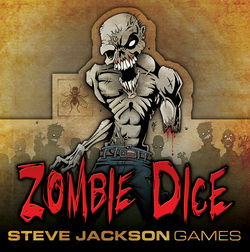 2010 was another really good year, which makes four in a row.
2010 was another really good year, which makes four in a row.
Munchkin Development
. . . went very well under Munchkin Czar Andrew Hackard. The 19th printing of Munchkin featured full-color cards (all following core sets had always had color cards, but the original game was duotone until 2010). That printing also involved a massive effort to make the Munchkin rules (for all sets, not just the original game) cleaner and faster without seeming to change at all. We got very little comment on this when it was done, which means it was a complete success!
The 19th printing kept us busy enough that we didn't release a new Munchkin theme in 2010, but we sent one to print. The team pulled together and got Munchkin Zombies to press ahead of schedule! It will be in stores in April.
Dice Games
Late in 2009, we sent two little games, Cthulhu Dice and Zombie Dice, to the printer. Both had been conceived in September '09, intensively playtested over the next few weeks, and sent to the printers before the end of the year. That is so much faster than our usual development time that it boggles the mind. But the best part of all, as I have already mentioned a couple of times in this report, is both games went like gangbusters, contributing significantly to 2010's success!
Warehouse 23
Online sales of physical goods held steady. Warehouse 23 was profitable. We're the exclusive online retailer for some excellent publishers, including Atlas Games and Grey Ghost Press, and we're happy about that.
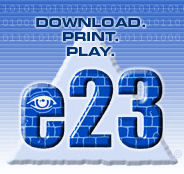 e23
e23
Our digital-product division, e23, had slightly higher sales in 2010. We think we're still the #2 or #3 seller of downloadable files for the gaming community – but this is a guess, as we have no figures for the competition.
In 2010, e23 maintained a steady weekly release schedule, adding 30 brand-new PDFs (mostly for GURPS), an assortment of freebies, 27 PDF editions of previously printed books, and 26 print-to-PDF conversions of Space Gamer.
We also released a number of PDFs from Amarillo Design Bureau, Atlas, Avalon, 0one Games, and other publishers.
Business Organization
Our business organization remains reliable. Our financials and royalty payments have stayed up-to-date for years. A new biweekly cash flow report helps us judge when to send more things to print, and when to slow down. We would benefit from a formal budgeting process. We have no advance budgeting here; we get by on a few ancient but effective rules of thumb, diligent cost accounting, and a dash of paranoia.
Sending Steve Home to Design Games
For much of last year, I worked only two days a week in the office (some on management, some on development). The other side of the coin is that even when "at home making games," I was answering a lot of management mail. But progress continues.
 Neat Little Things
Neat Little Things
Among the best "small wins" of 2010:
- The Cthulhu Dice Bag, created by Alex Fernandez, completely rocked . . . and it sold well enough to hit the year's Top 40 list. It actually beat some Munchkin releases.
- We posted very fine Flash demos for Cthulhu Dice, Revolution! and Munchkin, adding to the Zombie Dice animation already up.
- Pyramid Magazine, in its new monthly PDF format, is respectably profitable.
- The three new boardgames released in 2009 had all broken even by the end of 2010. In fact, we released a supplement for Revolution!, and The Stars Are Right is scheduled for a reprint.
Ehhhhh . . .
These were the places where we wanted a win and didn't quite get one, or where success and failure were mixed.
Apps . . . But Slowly
The Munchkin Level Counter iPhone app has continued to sell and get good comments, and the project is now in the black. So we wanted to do more.
We completed and shipped a Zombie Dice app. It was intended primarily to promote the dice game, so the basic version is free, but we also offer a 99-cent upgrade. This project pulled together the talents of several of our staff and showed me that, for sure, we can do fine digital releases.
Nevertheless, other progress has been slow. The Android port of Munchkin Level Counter is, at this writing, still one little graphics bug away from release, largely because Android has proven to be a difficult platform. The iPad upgrade of the Zombie Dice took a long time and is now awaiting review by Apple, but it doesn't support multiplayer. Another project which we'd hoped to release in 2010 didn't even get far enough to announce.
We really need a full-time producer to manage our digital development, because my own time is one of the biggest limiting factors on app contracting and testing, and therefore on app release.
Munchkin for Xbox Live
We came to an agreement with Tinderbox Entertainment to do an Xbox Munchkin. We warned them that we would not give the project the attention that it deserved, and they said, "That's all right; we're not a big studio and we have other things to work on."
And we were both right. Very little has happened on this. As with apps: we either need a full-time producer, or I need to devote a lot more of my own time to it.
Staff
Our staff picture improved again, but still not enough. We made some good additions, but a couple of good people moved on . . . and we wish them the best of luck, but we also wish we could have kept them!
However, many of our staff have been with us for more than five years, and several for more than ten. This stability is a strong point. And our key lines are getting specific attention: we have two full-time staff dedicated to Munchkin, and two dedicated to GURPS.
In 2010, we gave holiday bonuses totaling 11.3% of payroll, plus modest raises. As in 2009, we had two "office closed, but everybody gets paid" weeks – one in summer, one at the end of the year – and three paid Game Days in the office.
Cleaning Out the Pipeline
We continued to restart stalled projects; GURPS Crusades was finally released. Nevertheless, our pipeline remains full of partially-completed games, and we are still not soliciting outside submissions.
Failures
Things that didn't go as they should have . . .
Printed RPG Sales
The market for printed RPG books continues to shrink. The long-awaited release of GURPS Low-Tech, a full-color hardback, saw very disappointing sales. On the other hand, sales of the same title in PDF, and of the supplements in PDF, were good.
Heavy Gear License
We did not get around to doing anything with the Heavy Gear license, and Dream Pod 9 asked for the rights back. We don't blame them at all.
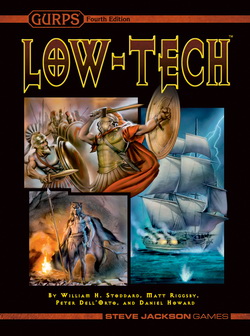 Print On Demand
Print On Demand
For more than a year, we have had a room sitting empty, waiting for a Print On Demand system, and a firm intention to do something about it. But we haven't. Maybe this year.
UltraCorps
Once again, we didn't launch UltraCorps. We are now using a virtual hosting service and reliability seems acceptable; the continuing delay on UC is another case of "Not enough management time for digital projects."
State of the Industry
2010 was, overall, a good year for the hobby, but it didn't bring us a lot of headlines.
- It was announced that Tim Burton would direct a film based on Privateer's Monsterpocalypse.
- Whether it's true or not, the "Pathfinder is outselling D&D 4e" meme got a lot of play in the gaming blogosphere.
- Barnes & Noble devoted a whole rack to hobby games. This indirectly helps local retailers much more than it competes with them . . . new customers who want expansions will have to go to hobby stores!
- Borders Books, another important retailer of hobby games to the mass market, suffered a serious cash crunch and delayed some payments to its suppliers.
- The market was glutted with Euro-style boardgames from old and new publishers.
- Pre-painted plastic figures remained popular, but the market was unstable. A few days into 2011, WotC discontinued the D&D plastic minis line.
- HeroClix returned.
Shared Goals and Partners
SJ Games continues to value, and rely on, its hobby-industry partners. These include:
- the distributors with whom we have flooring contracts, making it easier for retailers to carry our full line;
- PSI, our fulfillment agent for other distributor sales;
- the many overseas publishers who are translating Munchkin and other games;
- Adventure Retail, which represents us at Origins, GenCon, and other major conventions;
- the convention organizers who showcase our work, and the dedicated hobbyists who serve as Men In Black to demonstrate our games at retail stores and conventions;
- GPI, which does most of our printing;
- and the publishers, small and large, who distribute their digital products through e23.
Priorities: 2010 Report Card
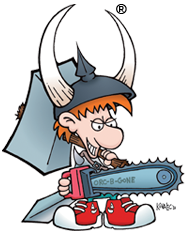 We set four priorities for 2010:
We set four priorities for 2010:
- Our first priority was to keep the core Munchkin sets in print. We did very well on this – and managed a quality upgrade at the same time! That in itself made it a good year.
- The second priority was to support Munchkin and MQ with new releases. Almost a success. New Munchkin releases: several! New MQ releases: one, Munchkin Quest: Portal Kombat. New digital Munchkin releases: just one, the Munchkin Level Counter app for Android, which didn't make it out until February of 2011. We wanted to ship two.
- The third priority was to promote ourselves more consistently. We tried a number of things: more retailer visits (mixed success), book chain promo events (complete waste of effort), big PAX presence (huge success), Flash demos (artistic successes that didn't get many views), Ustream chats (only a few hundred views each, but we got good feedback). We didn't hire a community manager.
- The fourth priority was to add to our team. We have promising replacements for the talent lost during the year, and a couple of other gaps were filled. So: success here, but continuing effort is needed.
Priorities for 2011
Our priorities for 2011 are:
- First: keep the core Munchkin sets, and Munchkin Quest, in print.
- Second: ship several new Munchkin releases in a variety of formats (including digital); get Munchkin into new markets; promote Munchkin enthusiastically.
- The third priority will be to release more dice games, and possibly one or more small card games at a similar price point. This is important, but the first two priorities are taken . . . !
- The fourth priority will, again, be to communicate better and to promote ourselves better, starting with a serious upgrade of our web presence and our online store.
Everything else is a non-priority, something to do if the priorities are under control. Yes, we have a lot more projects in mind, but the priorities come first!
Thanks, as always, for your support.
– Steve Jackson
Forum discussion of the Stakeholders' Reports
Other Reports: 2023 • 2022 • 2021 • 2020 • 2019 • 2018 • 2017 • 2016 • 2015 • 2014 • 2013 • 2012 • 2011 • 2010 • 2009 • 2008 • 2007 • 2006 • 2005 • 2004 • 2003
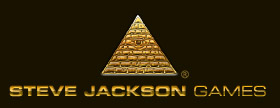
Top of Page | Home | Privacy Policy | Contact Us
